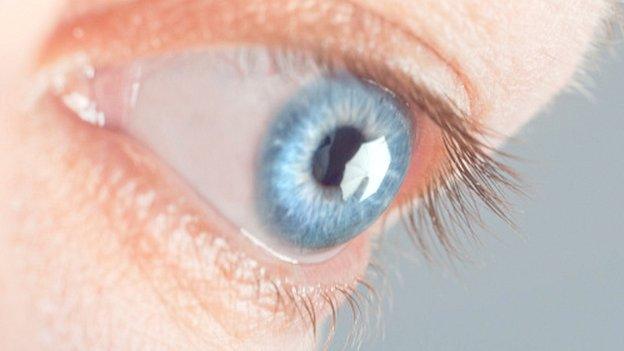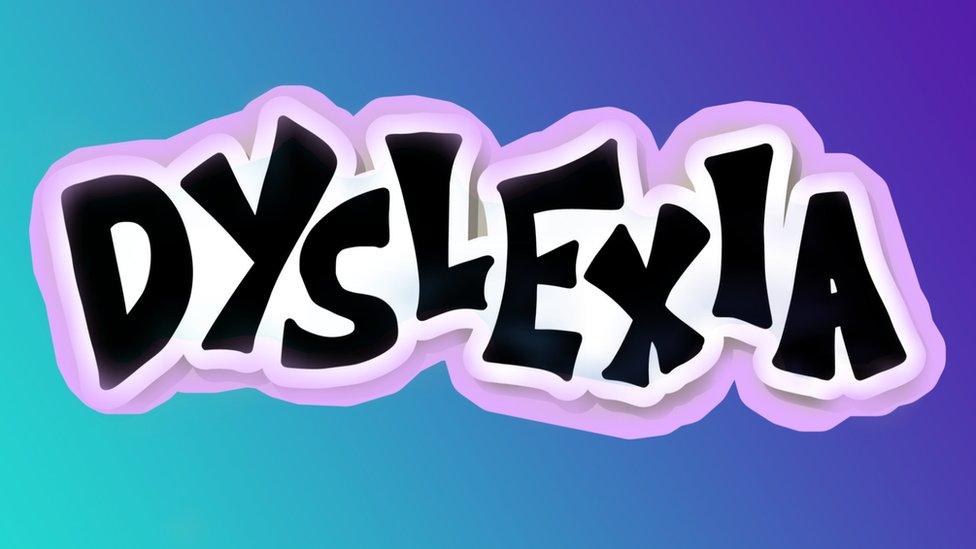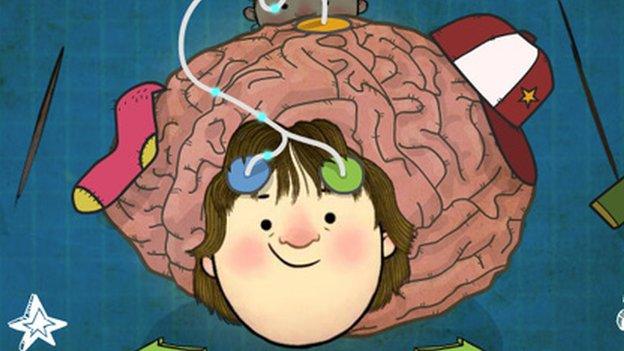Dyslexia not linked to eyesight, says study
- Published

Researchers say that dyslexia is not linked to eyesight
Dyslexia is not linked to any problems with eyesight, say researchers.
Teams from Bristol and Newcastle universities carried out eye tests on more than 5,800 children and did not find any differences in the vision of those with dyslexia.
This raises doubts about the value of using coloured overlays or lenses to help dyslexic children with reading.
Report co-author Alexandra Creavin said eyesight was "very unlikely" to be the cause of such reading problems.
The study draws on a long-term tracking study in the Bristol area, which has followed the health of more than 14,000 children since the 1990s.
About 3% of children have severe dyslexia and researchers, using a sample of 5,822 children from this tracking study, carried out detailed eye examinations on dyslexic and non-dyslexic children.
'Perfect vision'
They found that those with dyslexia were no more or less likely to have any sight or eye-related problems, such as short or long sightedness, squints or difficulties in focusing.
"Some practitioners feel that vision impairments may be associated with dyslexia and should be treated. However, our study results show that the majority of dyslexic children have entirely normal vision on the tests we used," said Cathy Williams, lead author and a paediatric ophthalmologist.
Where there were dyslexic children with eye problems, the occurrence was no more likely than for non-dyslexics, the study found. And a large majority of dyslexic children were defined as having "perfect vision".
This raised doubts about vision-based forms of assistance, such as using coloured filters to help with reading. This can include putting coloured acetate sheets over a page or wearing tinted lenses.
Dr Creavin, from the University of Bristol, said the research showed the need for clearer, evidence-based guidance for parents on what might help.
Dr Williams said the study was not looking for other possible causes for dyslexia, but it was the biggest study examining whether there was any link to children's vision.
Colour filters
Bruce Evans, director of research at the Institute of Optometry, said: "It is a great shame that in interpreting their results the authors seem to only consider two options: that visual problems either cause reading disability or are irrelevant to reading disability.
"Such extreme views were popular in the 1970s, but nowadays most practitioners recognise that children who struggle at school need to have sensory factors ruled out as possible contributory factors (for example tests of eyesight and hearing) and also to receive expert educational support which is the mainstay of managing reading disability.
"Reading skills are multi-factorial and therefore a multi-disciplinary approach to managing reading disability is advocated," said Prof Evans.
John Rack, director of education and policy at Dyslexia Action, said the charity backed the report's findings.
"However, not everyone has followed us in following the evidence, and the view that dyslexia is rooted in some problems in vision or visual processing is still widespread.
"The confusion comes in part from the fact that a minority of people who are dyslexic do find that text is significantly clearer when viewed through a coloured filter or lens. And some who are not dyslexic experience the same kind of benefit," said Dr Rack.
Kate Saunders, chief executive of the British Dyslexia Association, said that "some children and adults report benefits" from using coloured lenses or filters.
She said reading tests showed that such coloured filters could help people with dyslexia.
- Published2 October 2023

- Published15 August 2013

- Published15 March 2013
